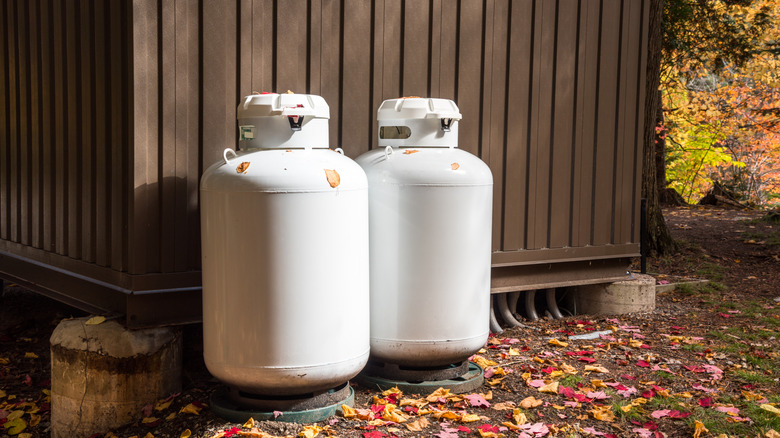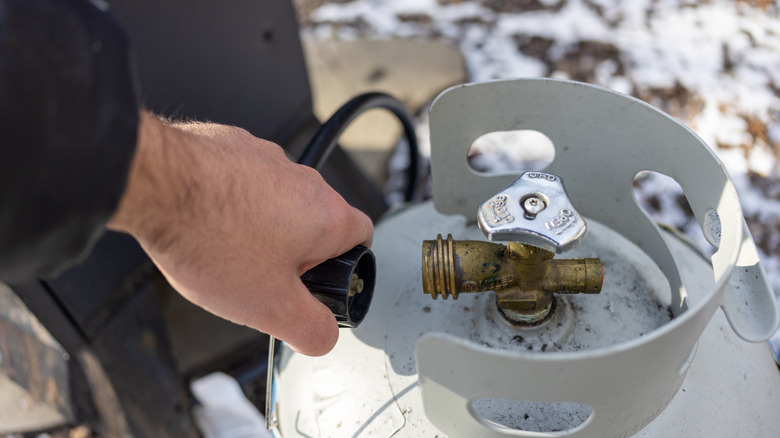How To Tell If Your Propane Tank Is Bad
A propane tank quietly does its job for years, sitting by the grill station in your backyard or tucked behind the house. But over time, the wear and tear (and weather elements) start to take a toll on it. The surest way to tell when your tank has gone bad is by paying attention to how it looks and how it holds up under use. Rust, dents, and leaks are the clearest warning signs that the tank's safety has been compromised. Once corrosion starts eating the metal tank, the walls begin to thin, and that can increase the chances of dangerous leaks.
Even sturdy tanks lose their strength once rust gets beneath the surface. Physical damage can be just as serious. A tank that has been dented from a fall, hit by lawn equipment, or bumped during transport may no longer be safe to use. Those impacts can weaken the shell or loosen valves, making it more vulnerable to leaks. When you recognize these external changes early on, it keeps your propane system reliable and your household safer.
Performance issues that signal a bad propane tank
A propane tank can look perfectly fine on the outside and still show signs of trouble in how it performs. One of the most obvious warning signs is the smell of gas. Propane is naturally odorless, but a distinct scent is added to it to make it easy to detect a gas leak. That scent is similar to rotten eggs or skunk spray. If you ever catch a whiff of that odor around your tank, it's a serious sign that propane may be leaking, and the tank should be checked right away. Ignoring this smell is one of the most common mistakes you're probably making with your propane tank.
Another red flag is how your propane tank operates. When a tank starts aging internally, pressure levels can fluctuate inside it. This causes inconsistent heating or unreliable performance. You might notice the burners struggling to stay lit or having uneven flames. These issues often develop as the lifespan of your propane tank nears its end. It often happens when internal components and seals begin to wear down. Every propane tank carries a stamped certification date that shows when it was last approved for safe use. Once that marking fades or the tank fails inspection, it's no longer fit for use. Replacing it helps to make sure that your tank offers steady performance and keeps your system running safely and efficiently.

